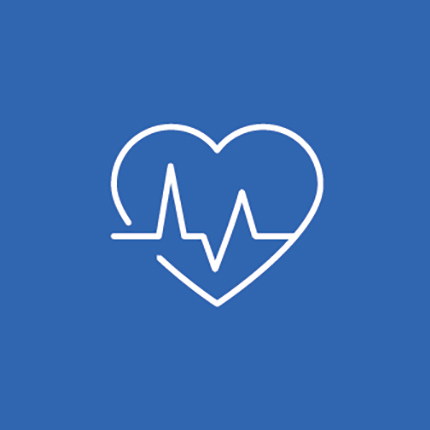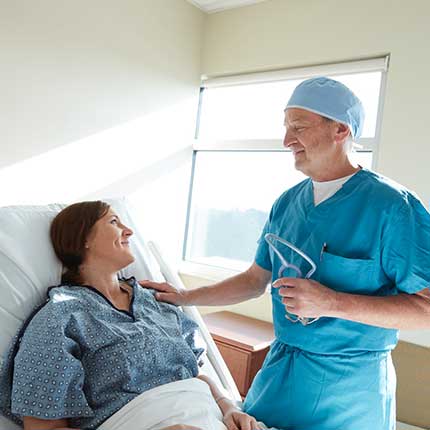What to Expect at Your Cardiologist Appointment
Jan 5, 2021For whatever reason—whether you need specialized heart care, have specific symptoms of heart disease or have heightened risk factors (high blood pressure or cholesterol readings or a family history of heart disease)—you’ve made your appointment to see a cardiologist. This is a positive, first step in staying on top of your heart health, and you will want to make the most out of this very important doctor visit.
- First off, be prepared. When you arrive, have a list of any medications or supplements you take with exact dosages, any symptoms of heart disease you may have or have had, your health history and the health history of your family.
- Bring a pen and paper. You may feel like you are getting information overload, so you’ll want to take notes. Plus, you may think of questions during the visit.
- After your vitals have been checked, your doctor will most likely ask you a series of questions. Be honest with your doctor, especially when it comes to the details of your eating and exercise habits and your family medical history. Your cardiologist needs all the pieces of the puzzle to effectively help you fight heart disease.
- Make the most of your appointment and don’t be afraid to ask your own questions. Do some research, go in with a prepared list of questions and ask for clarification or a follow-up if needed. Good doctors will spend the time with their patients and thoroughly answer any questions or concerns.
- What are my risk factors for heart disease?
- What tests will you be ordering, why are you ordering them and what does each show?
- When can I expect to find out the results of the tests and how will I be notified?
- What are the next steps after you receive the test results?
- Why are you prescribing this medication, how will it help and what are the side effects?
- What should my ideal blood pressure be? How do I check my blood pressure on my own and how often should I check it?
- What do my cholesterol numbers mean? What should my goal number be for my LDL (low-density lipoprotein) or “bad” cholesterol?
- Should I take aspirin daily?
- What changes in my lifestyle do you recommend?
- How important is family history in diagnosing heart disease?
- What should I be doing on my own to fight heart disease?
Remember, one of the most important aspects of the doctor-patient relationship is communication. Make sure you are comfortable with your cardiologist, and if you are not, don’t be afraid to find another doctor. You are creating a partnership in your fight against heart disease and your cardiologist may the most important physician in your life.
Time for Your Heart’s Close-Up
To ensure you receive the best appropriate care, your cardiologist may recommend a series of tests to measure your heart's function. There are several tests available and prior to any tests, the cardiology staff should discuss with you in detail what the test entails and what it measures.
Common Tests for Heart Function
- Electrocardiogram (ECG or EKG) - Measures the electrical activity of the heartbeat. This allows a doctor to determine if the heartbeat is normal, slow, fast or irregular, and may determine if parts of the heart are too large or overcrowded.
- Chest X-Rays - Gives the cardiologist information about your lungs and the heart's size and shape. The amount of radiation from a chest X-ray is extremely small and doesn't cause any long-term side effects.
- Echocardiogram - An ultrasound movie of the inside of the heart that can detect nearly every congenital heart defect or any problem of the heart muscle function.
- Cardiac Catheterization and Angiogram - A cardiac catheterization procedure allows the cardiologist to get direct information about the blood pressures and patterns of blood flow within your heart. An angiogram, usually performed during a catheterization, is an X-ray movie that's taken while a special contrast fluid visible by X-ray is injected into a cardiac chamber or major blood vessel.
- Magnetic Resonance Imaging (MRI) - Another way to take clear pictures of the heart and measure heart function. MRI uses painless magnetic fields and radio waves to evaluate the heart and the blood vessels connected to the heart and lungs.
- Computerized Tomography (CT) of the Heart - The CT scan uses multiple X-ray images to take an X-ray movie of the heart and lungs without placing catheters into the circulation.
- Transesophageal Echocardiogram (TEE) – A special type of ultrasound movie of the heart that produces much clearer pictures than a standard echocardiogram that's performed on your chest. To complete the study, the doctor places a special long tube with a small ultrasound probe on the end, called a TEE probe, in your esophagus, while you are sedated.
There also are several tests that can help your cardiologist diagnose an arrhythmia, a problem with the rate or rhythm of the heartbeat, and monitor the effectiveness of your treatment.
Special Heart Rhythm Testing
- Holter Monitor – A small recorder, worn and attached to your body by stickers, that records every beat of your heart for 24 hours.
- Event Monitor – A small recorder that is worn most of the day, typically for 30 days, and is always recording but not saving. When you have a symptom, you push a button on the recorder, which saves the rhythm just at that time and sometimes for a brief time before the button is pushed.
- Implantable Event Recorder – Also known as an implantable loop recorder, this device is placed under the skin through a minor operation and can record your heart rhythm for up to 14 months.
- Transtelephonic Pacemaker/Implantable Cardioverter Defibrillators (ICD) Transmission – Patients who have pacemakers and implantable cardioverter defibrillators (ICDs), a small device that's placed under the skin in your chest to help control your heartbeat, routinely send a rhythm strip or a recording by telephone transmission to check pacemaker/ICD function. A new technology allows ICD and pacemaker patients to send all their device information, including settings and recordings of arrhythmias, to their doctors by either fax or internet.
- Exercise Stress Testing – A test of your heart rhythm and stamina while you exercise. You may run on a treadmill at standard speeds and ramps or ride a stationary bike at a steadily increasing resistance, while connected to ECG leads, which continually record your heart rhythm.
- Electrophysiology Study – A specialized cardiac catheterization that looks at the heart's electrical or rhythm function instead of its blood flow. The heart's rhythm function is what controls the start of each heartbeat and controls the heart rate.
Source:
American Heart Association



